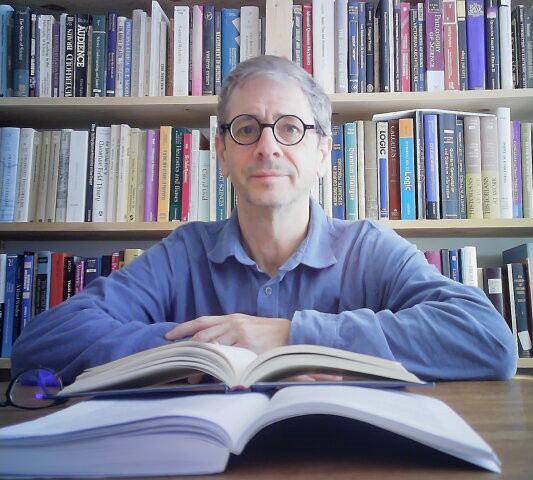Department of Philosophy
Directory
Michael Dickson
| Title: | Professor |
| Department: | Philosophy McCausland College of Arts and Sciences |
| Email: | dickson@sc.edu |
| Office: | Close-Hipp 525 |
| Resources: | Personal Home Page Curriculum Vitae Department of Philosophy |

Education
PhD, University of Notre Dame, 1995
BA/BS, University of South Carolina, 1990
Interests
philosophy of music, philosophy of psychiatry, philosophy of science
For a couple of decades, I worked in philosophy of physics, especially quantum theory. I still occasionally teach in this area, but no longer publish in it. After taking on several administrative duties, I have returned to civilian life, and am developing new research expertise in philosophy of music and philosophy of psychiatry. My interest in music grows out of a lengthy training as a classical pianist and French horn player, a brief career as a professional musician before becoming a philosopher, and a continued abiding and serious interest in both musicology and musical performance. My most recent published work in this area is a long paper on musical notation, appearing recently in the journal Ergo. I have worked on the idea that musical works are (in somewhat an 'ontological' sense of 'are') instructions. I am currently working on an account of the aesthetic aspect of the experience of musical practice ('practice' in the sense of what happens in practice rooms and rehearsal halls and bedrooms and garages).
I also work in the philosophy of psychiatry, with a focus on issues related to our understanding of psychosis, especially insofar as it is seen as a 'symptom' of 'schizophrenia'. I am currently working on a paper about the nature of hallucination, and I am in the early stages of a paper about the role that individuals' self-understanding can and ought to play in both research and treatment of 'schizophrenia'. I am also interested in trying to help clarify the notion of 'neuro-diversity', both theoretically and as a practical concern.
Finally, I have teaching interests (and, rarely, research interests) in medieval philosophy and game theory, especially evolutionary signaling games.
Selected Recent Presentations
- “Musical Notation and Musical Instructions" (American Society for Aesthetics, Philadelphia) -- a lengthy version of this paper has appeared in the journal Ergo, and a short version has appeared in the Ergo Blog
- "Intellectual Humility" (Madpeople's Coping Mechanisms, Oxford, England) -- a (somewhat modified) version of this talk has appeared in the journal International Mad Studies
- "Living with the 'Paradox of Delusion'" (Too Mad to be True III, Ghent, Belgium)
- "The Aesthetics of Musical Practice" (Southern Aesthetics Workshop, Auburn)
-
"Hallucination as a Memory of the Present" (Southern Society for Psychology and Psychiatry)